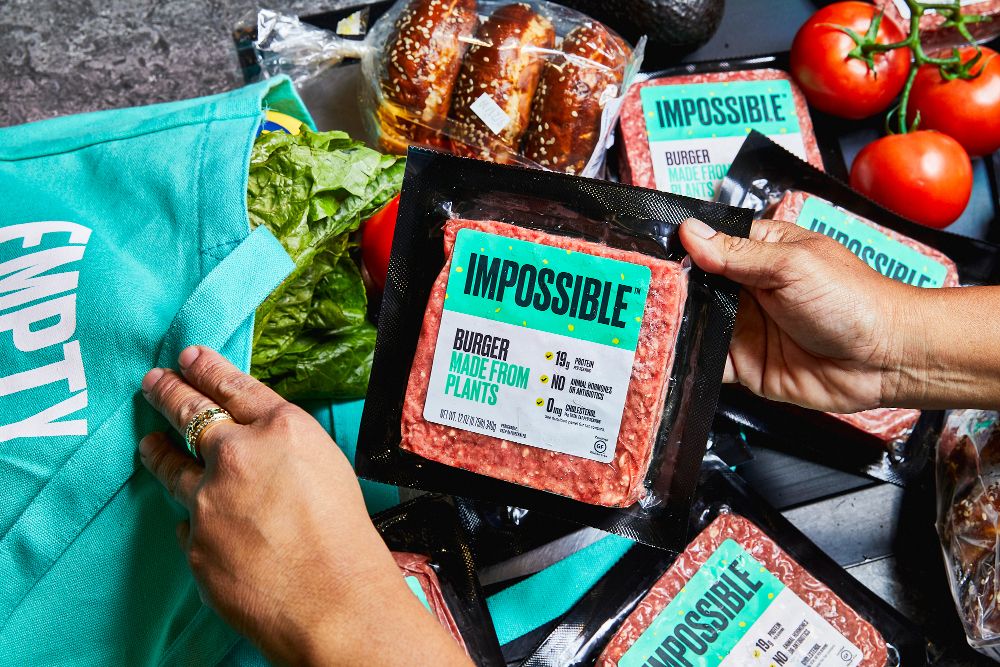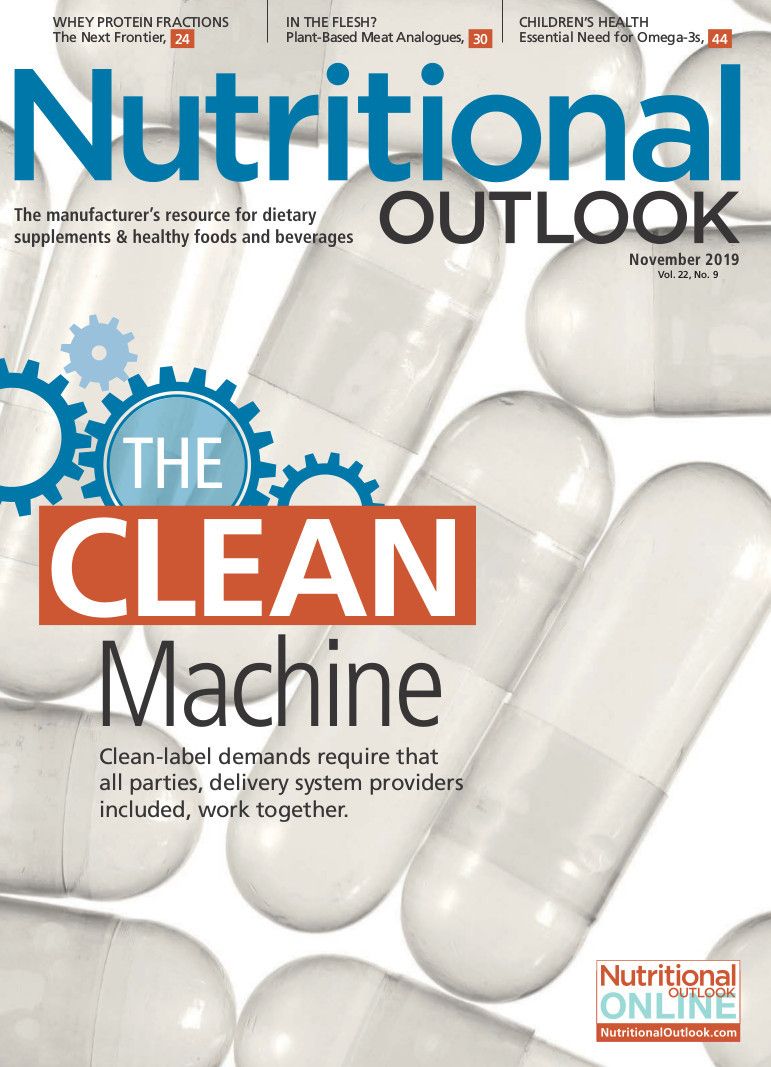Beyond Meat and Impossible Burger go mainstream as these meat analogues encounter both fans and critics
Here, we look at some of the positive and negative comments.
Photo from Impossible Foods Inc.

Meat alternatives are undeniably having a moment. As state-of-the-art plant-based substitutes like Beyond Meat and the Impossible Burger storm grocers, restaurants, and fast-food chains (so it seems per the media coverage they’ve received), there is still a segment of the population skeptical about these products. Here, we look at some of the positive and negative comments.
One of the biggest attributes of plant-based “meats” is that their production is generally more sustainable compared to conventional meat, producing fewer greenhouse gases and using less land and water. However, one of the criticisms leveled at these newer meat analogues is that, although they use plant inputs, the end products are quite processed and contain a long list of ingredients that runs counter to the move toward cleaner labels, fewer and recognizable ingredients, and transparent production. (Playing devil’s advocate: One could also argue back that some foods consumers perceive as healthy are also processed and fortified to some or great extent.)
Another question is whether these meat analogues are actually healthier than their meat counterparts. Some say no. I caught up with Kantha Shelke, PhD, CFS, principal at Chicago-based food science and research firm Corvus Blue LLC and a senior lecturer at Johns Hopkins University. She says: “The food scientist/nutritionist in me is concerned that the protein quality and quantity and vitamins and minerals of these highly manipulated products do not come close to that of animal-based products. They contain a significant amount of carbohydrate and therefore are more glycemic than the real thing. Their physiological effects do not come close to those of real meat.”
To be fair, neither Beyond Meat nor Impossible Foods necessarily markets its products as healthier than real meat; they primarily promote them as sustainable alternatives. But is the average consumer likely to believe off the bat that a plant-based burger is healthier than a meat-based one? Plant-based alternatives do enjoy a “health halo,” said Tom Rees, industry manager of food and nutrition for market researcher Euromonitor, during an October 17 webcast called “The Future of Meat: Is Consumption Really Decreasing?”
How long that halo lasts remains another question, he said.
“At the moment, these [alternative] products aren’t under massive scrutiny because they’re sitting under this health halo,” Rees said. “However, as we go forward, this issue will come more sharply into focus. More people will question what’s in them, and differentiation between products based on what’s closer to being clean label, what’s closer to being recognizable, will become stronger. Those who can’t adapt will face losing that health halo.”
Another line of discussion about Beyond Meat and the Impossible Burger is that they are supposed to make it more comfortable for meat-eating consumers to transition to a plant-based diet. Consumers don’t have to drastically change their dining habits; they can have their “meat” and eat it, too. But is that the best approach if the goal is to encourage the world to change its thinking and to truly embrace eating plants?
In an article in The New Republic in June titled, “The Promise and Problem of Fake Meat,” author Emily Atkin writes “[T]hese fake-meat products are engineered, specifically, to fool our senses into thinking they’re whole foods-and then marketed, by meat companies, to change our language to reflect the trick. This is nutritionism at its finest, and its success so far reflects the lengths we will go to avoid changing our behavior: We would rather change the entire definition of meat to include something we know isn’t meat, rather than eat less of it to save the planet and ourselves.”
Finally, not everyone will be fans of these products. Shelke says, “For vegetarians and vegans, there is no need for these products to mimic meat foods, because they are perfectly comfortable with consuming high-protein vegetable foods without the extensive manipulation and processing.” And while the trendiest meat analogues continue to capture public fascination, Shelke reminds that there are a great number of other plant-based meat alternatives that have just as much merit. She says: “Some of the textured soy protein products have pretty much delivered on the nutrition and taste/texture of meat foods…and for quite a few years. There is a world of taste and textures waiting from various cultures that are also delicious and healthful, and expanding on that front might be more sustainable and sensible than investing in analogues of meat products.”
The meat analogue market will no doubt be a fascinating one to follow as food science and consumer reception of these products develops. As these alternatives take on the mainstream market, they will be met with some open arms-as well as a helping of beef.
Also read: Meat alternatives technology: Getting better every day
Jennifer Grebow
Editor-in-Chief

Prinova acquires Aplinova to further increase its footprint in Latin America
April 7th 2025Prinova has recently announced the acquisition of Brazilian ingredients distributor Aplinova, which is a provider of specialty ingredients for a range of market segments that include food, beverage, supplements, and personal care.


















